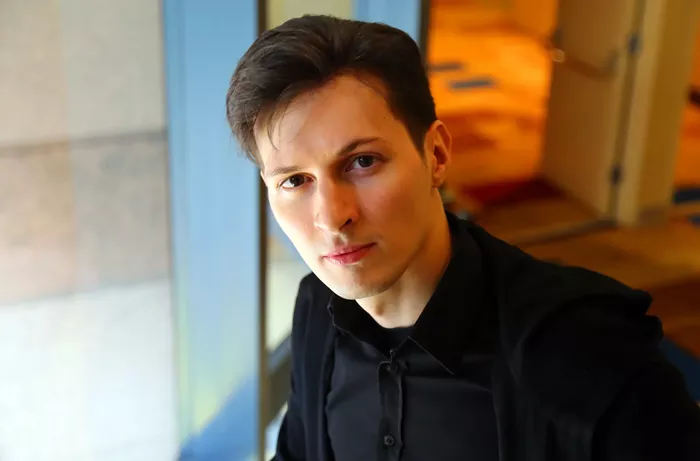Pavel Durov, once hailed as Russia’s answer to Mark Zuckerberg, has seen his anti-establishment fervor evolve from a badge of honor to a serious legal liability. The founder of Telegram, the messaging app known for its commitment to free speech, finds himself at the center of a storm after his recent arrest in France linked to an investigation into criminal activities on his platform.
The saga began over a decade ago when Durov, known for his defiant stance against authority, famously mocked Russian intelligence services by posting a playful image of a dog in a hoodie, captioned with a sardonic message. This spirit of rebellion set the tone for his later ventures and public persona.
Now, Durov’s uncompromising approach has led to his detainment, as French authorities scrutinize the role Telegram may have played in facilitating illegal activities. French President Emmanuel Macron underscored the country’s commitment to free expression but emphasized that such freedoms must operate within a legal framework, both online and offline.
Durov’s arrest has ignited a firestorm, propelling him into the limelight as a symbol of resistance against government censorship. High-profile supporters including Elon Musk and Edward Snowden have rallied to his defense, advocating for his release under the hashtag #FreePavel. This support reflects broader global concerns about the balance between tech innovation and regulatory oversight.
Telegram, in response, has asserted its adherence to European Union laws, dismissing claims that it or its founder should be held responsible for misuse of the platform. Durov, a staunch advocate for privacy and free speech, has consistently prioritized these principles over stringent content moderation. His philosophy—that privacy outweighs the risks of misuse—has shaped Telegram into a refuge for those under authoritarian regimes, but has also attracted criminal elements.
In a display of his commitment to privacy, Durov has championed Telegram’s policy of minimal interference. His personal social media presence reveals a complex character, from claims of fathering over 100 children as a sperm donor to bold statements about personal freedom.
Durov’s contentious relationship with governments and tech giants extends beyond France. After leaving Russia in 2014 under increasing scrutiny, he settled in Dubai, where he continued to clash with global entities over content regulation. Telegram has faced bans in 31 countries, reflecting ongoing tensions between its operational ethos and international norms.
In a recent interview, Durov accused the FBI of attempting to co-opt Telegram’s services for surveillance, underscoring his ongoing conflict with global intelligence agencies. The FBI has yet to comment on these allegations.
Born in 1984 in the Soviet Union and raised in Italy before returning to post-Soviet Russia, Durov’s journey from a young math prodigy to a controversial tech entrepreneur highlights a relentless pursuit of personal and professional ideals, often at odds with prevailing political and legal frameworks.
As the legal battle continues, Durov’s story remains a compelling case study in the intersection of technology, freedom, and governance—a narrative that continues to captivate and divide opinion worldwide.

